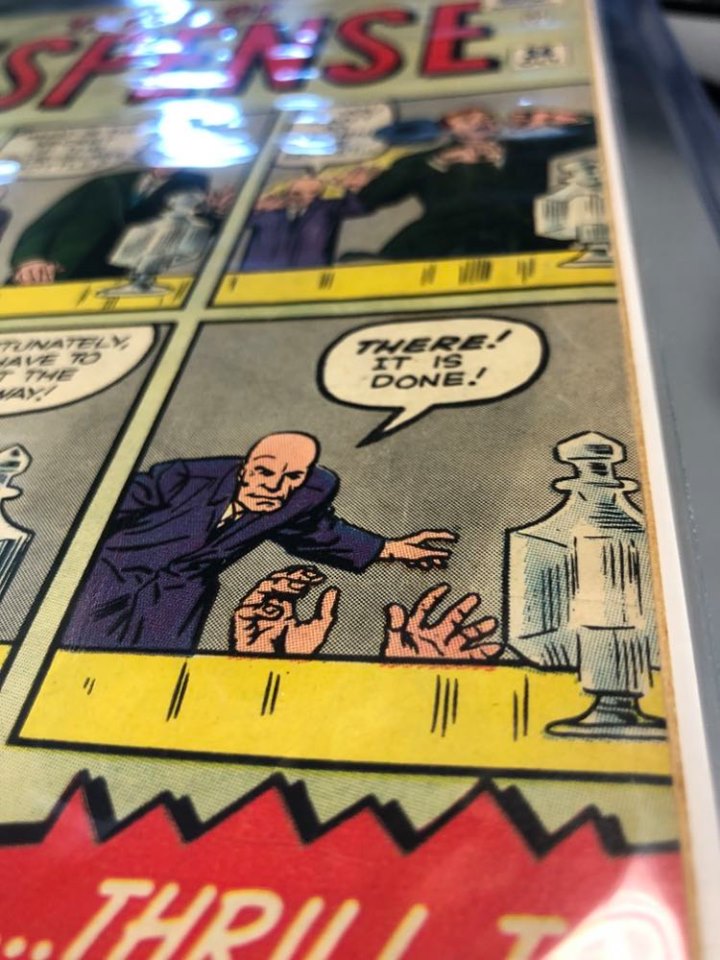
Jacques Lacan talks about the necessity for an incredulity towards our fantasies.
Our goals and dreams play an essential role in moving us through daily life and getting us out of bed in the morning. We strive towards reaching those goals; writing that book, finding a meaningful human connection, owning that (aptly named) Amazing Fantasy #15. Knowing we are working towards something pacifies us, and that striving keeps the existential crisis at bay.
Tom Hanks’ character in Castaway (2000) holds on to the box with angel wings painted on it (after looting all the others for rations) and it becomes his raison d’etre; Without such a purpose, it would be easy to shrivel up and die. It is less the achievement of the goal that matters, but more the motivation it provides.
In the end, achieving our dreams is seldom what it is cracked up to be. As a certain comic shop owner once said, “As always at the end of any endeavor, you are still just you.”
The neuroscientist (and not the Cavs owner) Dan Gilbert talks about impact bias, stating that people have a tendency to dramatically misjudge how some apparent good or bad would affect their future happiness. Winning the lottery isn’t going to resolve your neuroses. After a fire, trauma excluded, you will move on with the same amount of humor, grit, and grace that you possessed prior.
For instance, there is a banality about the arrival of an online order which is far removed from the lustful frenzy of clicks which preceded its arrival, and those moments of asking oneself, “It is in the cart, but should I?”
In another sense however, banality is a blessing because it is the lesser evil.
As Zizek points out about The Piano Teacher (2001) when Elizabeth Huppert’s character’s explicit fantasy is realized it is phantasmagorical and horrifying.
“When fantasy disintegrates [by being actualized] you don’t get reality. You get some nightmarish real too traumatic to be experienced as ordinary reality”
The nightmare scenario is reserved for the deeper desires on which our being-in-the-world hinges, and doesn’t apply to the swarm of daily micro-disappointments.
This is also slightly different than the Monkey’s Paw storyline in all its incarnations, which usually hinges on a semantic ambiguity or hastily considered genie wish, because this isn’t a bastardization of the fantasy, but the exact outcome one has been working for just crashing into the realm of ordinary life.
Our fantasies inform how we experience reality in the first place, more than just as motivation or stand in for meaning. They play a constructive role. And, it frustrates the real versus unreal dichotomy when reality is comprised of both wanting a thing and then possessing it.
So, finally addressing the cover. I’m not sure why Dude #1 cares so much about this bottle in the first place. But, the passions of others are always kind of mysterious – Beanie babies, planking, Nascar. But his tragic character flaw is definitely inquisitiveness.
Dude #2 knows about Lacan. He knows that at the end of the voyage Dude #1 is going to be disappointed with the results, but that doesn’t make the longing of the moment any less real, and it is his raison d’etre to help others achieve their goals. How else are they going to learn?
Much like a drug dealer, or comic bookstore owner.
Jarret Pervola teaches Philosophy and Humanities at Lorain County Community College. He also collects comics and only occasionally accuses his local, quotable comic shop owner of being a drug dealer.
Leave a Reply